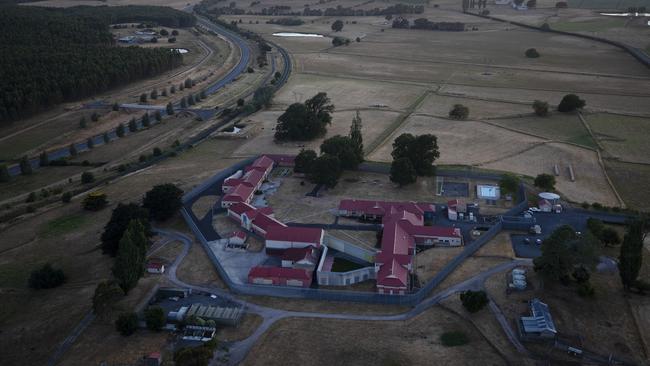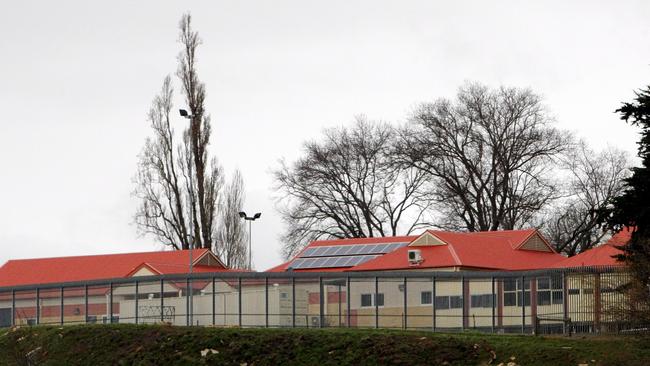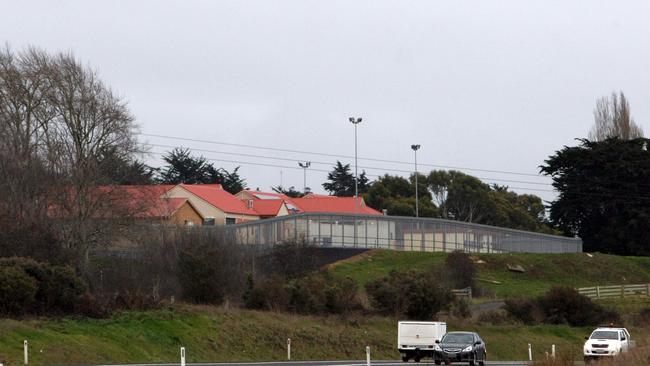Youths at Ashley Youth Detention Centre struggling to contact their lawyers: Tasmania Legal Aid
It’s getting harder for young people at Ashleys to have private and confidential conversations with their lawyers, after a new phone system was implemented, lawyers say.

Tasmania
Don't miss out on the headlines from Tasmania. Followed categories will be added to My News.
A Tasmanian legal service says young people at the Ashley Youth Detention Centre (AYDC) are struggling to access their lawyers, after a new phone system was implemented, but the department for young people has denied there are issues.
Tasmania Legal Aid associate director Rebecca Lancaster said phone access was an ongoing problem at the centre.
“When young people and children can’t access their lawyer they become quite anxious and distressed,” Ms Lancaster said.
“Recently, about [four] weeks ago, the phone access system has changed again.
“As I understand it, it now relies on the young person having to call out to their lawyer and we can no longer call in and be connected to the young person.
“An example has arisen this week where one of our lawyers urgently needed to speak to a young person and was unable to be connected.”

She said there were also problems in ensuring conversations were private.
“When our staff are trying to speak to young people about their legal matters, we get put through to a phone which has no privacy or confidentiality,” she said.
“We can hear in the background other young people, they might be trying to join in on the conversation, they might be distracting the young person.”

The recently released custodial inspector report recommended young people at the AYDC be provided with unhindered telephone access to relevant legal services.
The report found prisoners needed to go through a process of having legal numbers added to their account, which was not immediate.
Ms Lancaster said reaching young people for legal appointments was even harder when the centre was in lockdown.
“We have experienced trying to call a young person for a scheduled appointment and we’ve been unable to talk to the young person because of restrictive practices,” she said
She said having an onsite duty lawyer visit the centre a few times a week for confidential, face-to-face appointments could ease some problems.
“It’s even a matter of having that duty lawyer there to tell the young person what’s happening with their court matter, where it’s at, what’s happening at the next appearance,” she said.
“We would be ready to action it if we were funded to do so.”

A Department for Education, Children and Young People spokesperson said inmates in AYDC could request phone or Zoom calls with their lawyer at any time.
“Lawyers are able to ring AYDC and are put through to the young person at the time, or arrangements are made for the young person to call them back,” they said.
“AYDC staff advise young people when lawyers contact the centre and request to speak to them, including when there are restrictions in place.
They said Legal Aid’s suggestion was being considered.
“The Attorney-General has also recently met with the Director and Chair of Tasmania Legal Aid to discuss the provision of a duty lawyer service at AYDC, including the scope of the service and the proposed costings,” they said.
“The information provided by Tasmania Legal Aid is under consideration and the Attorney-General is keen to progress implementation of the service by the end of the year.”





